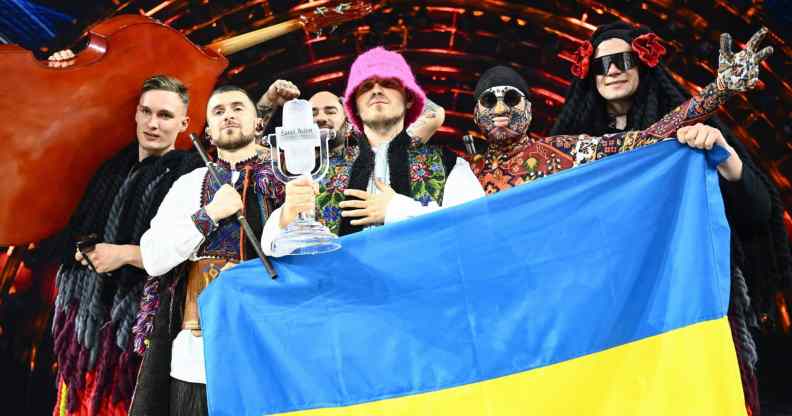Eurovision 2023: Final two cities in host shortlist announced

The UK will host Eurovision 2023 on behalf of Ukraine due to safety concerns (Marco Bertorello/AFP via Getty Images)
The shortlist of UK cities competing to host the Eurovision Song Contest has been narrowed to just Glasgow and Liverpool.
Organisers announced on Tuesday (27 September) that Birmingham, Leeds, Manchester, Newcastle and Sheffield had been eliminated from the running as part of the rigorous selection process.
Martin Österdahl, executive supervisor of the Eurovision Song Contest, thanked the cities that put their names forward in a statement.
“The EBU (European Broadcasting Union) would like to warmly thank all the seven British cities that put so much effort and enthusiasm into their bids to host next year’s Eurovision Song Contest on behalf of Ukraine,” Österdahl said.
“We very much appreciate their cooperation and the quality and creativity of all the bids received.”
He went on to describe the contest as “the most complex TV production in the world” and said there was a list of “logistical requirements” they had to consider in making their selection.

Sam Ryder, representing the United Kingdom, performs during the Grand Final show of the 66th Eurovision Song Contest (Daniele Venturelli/WireImage via Getty Images)
“We’re confident our final two cities are the best placed to meet this challenge and look forward to continuing our discussions to choose the one which will stage the world’s largest music event next May.”
UK’s Eurovision Song Contest will celebrate Ukraine
The UK is set to host the Eurovision Song Contest after Ukraine won in Turin, Italy, with their song “Stefania”.
The EBU later announced that the UK would host instead due to the ongoing war.
In a statement at the time, the EBU said that they had decided not to stage the contest in Ukraine “with deep regret” due to “safety and security issues” arising from the war.
It is understood that the 2023 contest, while being held in the UK, will celebrate Ukrainian culture.
Organisers have also clarified that Ukraine will automatically qualify for the 2023 contest as the most recent winner.
Potential host cities have been assessed by the BBC based on a set of criteria which looks at whether they have a suitable venue and sufficient space to host the contest.
The BBC has also looked at whether cities can offer a “financial contribution” to hosting the event, as well as the “strength of the cultural offer”.
According to BBC News, Manchester’s AO Arena has the largest capacity for a venue in any of the shortlisted cities. That’s followed by Birmingham Resorts World and Glasgow OVO Hydro.
The host city will ultimately be decided by the EBU and the BBC. The winner must be able to accommodate 10,000 spectators and its venue should be within easy reach of an airport, organisers have said.
It must also be able to offer adequate hotel accommodation for delegates, Eurovision fans and journalists attending.

